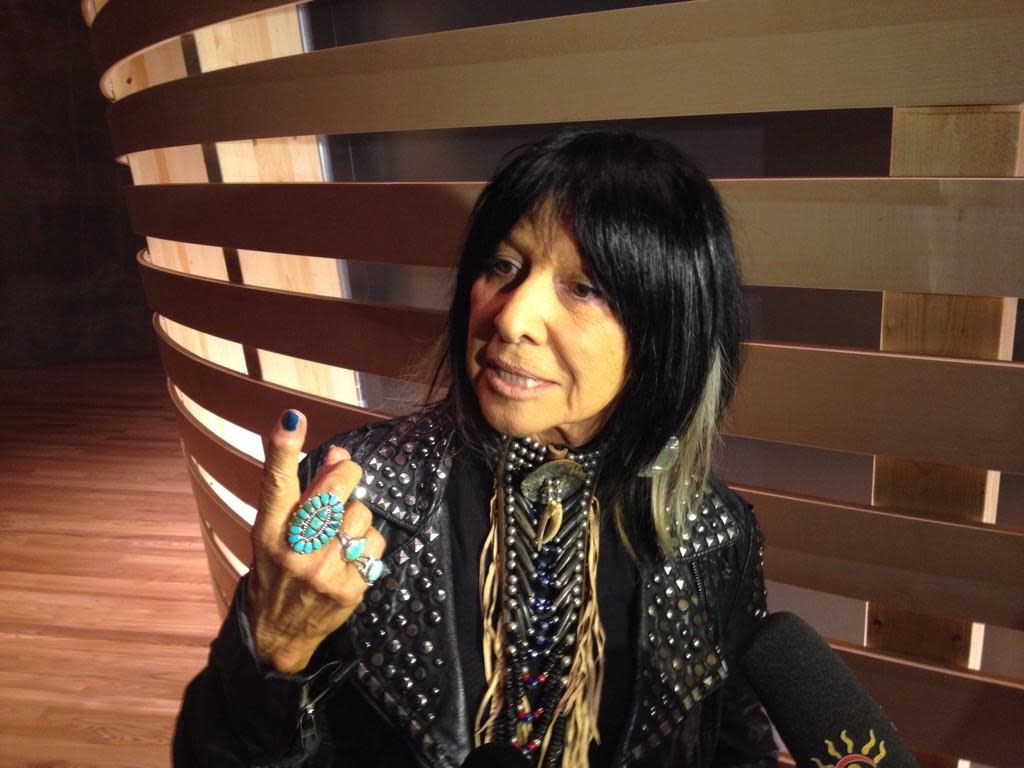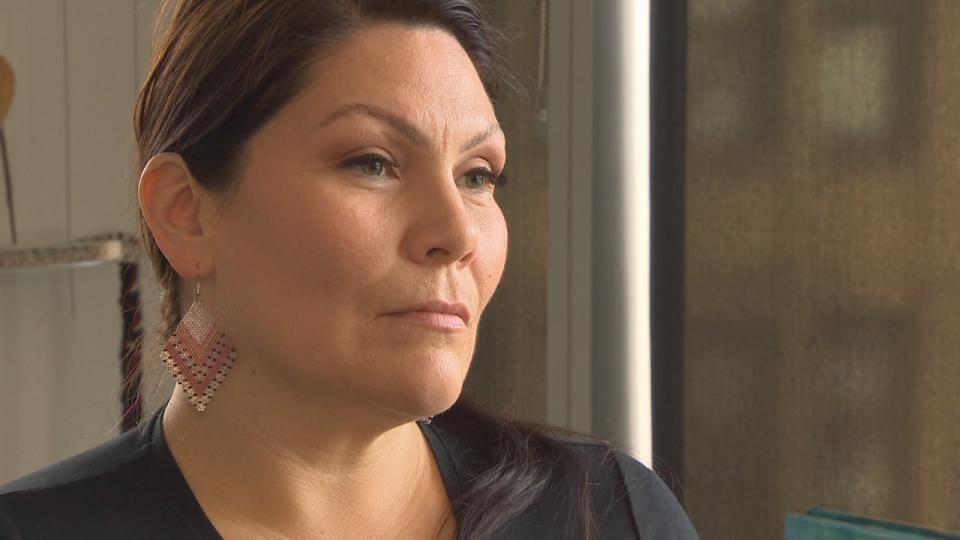Manitoba's Indigenous arts community grapples with revelations from Buffy Sainte-Marie documentary

A Cree and Métis singer-songwriter from Winnipeg says he's struggling with his feelings after an investigation by CBC's The Fifth Estate that calls into question singer and activist Buffy Sainte-Marie's claims to Indigenous ancestry.
Don Amero described his feelings following the report as "grey."
Amero said he has met Sainte-Marie many times over his career, and feels he owes her a debt of gratitude for opening doors for him and other Indigenous artists.
"To get to this place in my career as an Indigenous artist, I stand on the shoulders of giants, and Buffy is one of those giants that kicked open the doors for a person like me," he said.
After watching the Fifth Estate documentary, he says there are certainly questions that are shaking people within the community, but Sainte-Marie's long legacy makes it difficult to know how to respond.

Singer-songwriter Don Amero, seen here in a 2021 file photo, describes his feelings following the documentary as 'grey.' (Karen Pauls/CBC)
"The response from the community is also in relation to what she's done for the community. So it's a challenging conversation that I know we're not going to get to the bottom of anytime soon."
For many years, Sainte-Marie claimed she was born on the Piapot First Nation near Regina and is of Cree ancestry — claims contradicted by genealogical documentation, including her own birth certificate, historical research and personal accounts, the CBC investigation found.
At this point, Amero said he's trying not to take a side in the debate. There are plans in the works for local Indigenous musicians to get together to discuss how to define whether someone is Indigenous, he said.
"I think that's an important piece that we need to figure out," he said. "Up until now or until recently, we've sort of taken people at their word, and I suppose this highlights the struggle of that."
That meeting has been in the works for several months and is expected to happen soon, said Shaneen Robinson-Desjarlais, the Indigenous music development co-ordinator for the industry association Manitoba Music.
The documentary has stirred up a lot of emotions in the Indigenous music community, she said in an emailed statement.
Robinson-Desjarlais said she's had "several conversations with many people in our Indigenous music family across the country" since the documentary aired, and "there are a lot of emotions including disbelief, anger, hurt, confusion, frustration and shock on both sides of this story."
She added that "healing and moving forward will take time."
Feeling let down
Jade Harper, an Anishinaabe and Cree TV and film producer and director with Treaty One Productions in Winnipeg, said the documentary left her feeling shaken.
She said she's disappointed to hear such allegations about someone who was an icon in her community.
"I remember when Buffy came on the radio and how it brought my grandmother and my aunties to their feet with pride and joy. You know, her impact is really undeniable," she said.
"I think we're at this place where it's like, can we be so inspired by someone and feel let down by the same person?"

Jade Harper is an Anishinaabe and Cree producer and director in Winnipeg. (Randall McKenzie/CBC )
Harper said she also wonders about the long-term impacts of the CBC investigation, particularly around how claims to Indigenous ancestry are verified.
Sainte-Marie has received many accolades over the course of her career, including a Juno award for Indigenous album of the year — which one advocacy group now wants rescinded.
Those accolades also include an honorary doctorate in music from Brandon University in 2011.
A spokesperson said the southwestern Manitoba university is "absorbing the allegations" but wants to hear from Indigenous leaders before taking any action.
In spite of the questions around her identity, some Indigenous people will continue to accept Sainte-Marie as part of their community because of her decades of activism, said Niigaan Sinclair, a professor of Native studies at the University of Manitoba.
"I think it's because she's done the kind of heavy lifting that it takes to build relationships," he said.
"And so I think for a lot of Indigenous people, they may still claim her regardless of any other evidence that comes to light."
To date, Sainte-Marie has not addressed these issues directly with CBC.
In a public statement last Thursday, Sainte-Marie called The Fifth Estate's allegations "deeply hurtful." She continues to claim an Indigenous identity.
Sinclair said the documentary has caused a lot of hurt for the Indigenous community, and he feels Sainte-Marie should come forward and talk about the allegations she's facing, or risk having a permanent blemish on her legacy.
"I want this to be something that's not just discussed in the public eye, but discussed in the Indigenous community," he said.
"I want this to be a productive and a positive thing, not something that is so, so heartbreaking."


